|
I received some questions from VMware and thought that it would be fun to write this blog as a mock interview, but first let's begin with learning a little about VMware certification tracks. VMware offers certifications in cloud management and automation, data center and network virtualization, and desktop and mobility. As a leader in the virtualization space, VMware certifications are a must-have for many IT professionals, especially those who work in data centers and/or support virtual environments. VMware certifications are based on a version of the associated technology, which means VMware certifications change in response to technology changes. Be aware, though, that certification updates lag behind the release of new virtualization technology. VMware Version certifications fall into four categories:
Associate certifications typically require passing a single exam to achieve certification. Candidates for Professional and Advanced Professional certifications must either take a training course or earn a prerequisite certification and pass an exam. To obtain a VCIX, candidates must earn two VCAP credentials. Achieving a VCDX certification is more involved. Candidates must first obtain multiple prerequisite certs, then create a production-ready VMware solution and defend it in front of a panel. Now that we have discussed the certification tracks let's jump into the interview about certifications from VMware and AdvizeX. This interview is held between VMware and AdvizeX employees Chris Miller who is a Principal Architect and Brandon Seymour, a Virtualization Architect, Patrick Stasko, a Solutions Architect, and Jamie Carlson a Principal Networking Lead. You can find out more information on Chris and Brandon from a previous blog on being a vExpert that I wrote.
VMware: Why did you decide to take your first test and what was your motivation? Chris Miller, AdvizeX Principal Architect: The first certification test(s) I took was the MCSE NT 4.0. My motivation at the time was enhancing my resume, gaining knowledge from the associated training, and giving my early career a boost by obtaining a certification that was in high demand at the time. Brandon Seymour, AdvizeX Virtualization Architect: I wanted a career in IT and so I pursued my MCSE in NT 4.0. This also included training and certifications in Novell, and A+ through a technology school after the military. My first VMware certification was VCP-DCV5.0 and was taken to enhance my career in virtualization while working as a Enterprise Systems Administrator for a local University. Patrick Stasko, AdvizeX Solutions Architect: Career Advancement. Jamie Carlson, AdvizeX Principal Networking Lead: In 1998, it seemed one of the best set certifications out there was a combination of having the Novell Certified Engineer and being a Cisco Certified Network Professional. It was a great combo. It opened a lot of doors as I was leaving the Navy in 2000. My first exam was a Certified Novell Administrator. VMware: What was your journey for the first test? Chris Miller, AdvizeX Principal Architect: My journey for all of the test, involved a 4 week boot camp in Atlanta, GA. It was very interesting to me because I had not traveled out of state much up until that point (I was only 21 years old at the time). My employer at the time, an Internet ASP (I think we call this SaaS now :) ), offered to pay for boot camp training since we had big plans and our application was built on Microsoft technologies. Having certified folks on staff also helped lend credibility when we attempted to secure funding for future growth. We had an opportunity to receive a big discount on the training and I took it. Brandon Seymour, AdvizeX Virtualization Architect: My journey was similar to that of Chris in that I also attended a boot camp for my MCSE and for my VMware certification I started with my employer at the time sending me to a local VAR for a week of training. Patrick Stasko, AdvizeX Solutions Architect: A lot of book studying. Cramming. Memorizing port numbers and other facts that you would normally reference anyways. Jamie Carlson, AdvizeX Principal Networking Lead: I had a lot of experience managing a Novell network that ran on Cabletron and later Cisco switches. It didn’t take much for me to self-study and take the Novell exam to start me as a CNA. VMware: Were you nervous, how did you study? Chris Miller, AdvizeX Principal Architect: I wasn't nervous but mostly because I've been a good test taker throughout high school and college. In the boot camp, the format was 3 or 4 days of 10-hour-per-day training and taking an exam the morning of the 4th/5th day. I believe there were 5 total exams and most of the evenings were spent studying further, so I didn't get to enjoy my trip very much outside a day or so on the weekend. Throughout the boot camp training class, I focused very hard on the material and payed close attention to the instructor. Outside of class there were attempts to study, but the friends I made while there the first week and I moved our study sessions outside to the hotel pool and productivity took a dive w/ the rest of us. Brandon Seymour, AdvizeX Virtualization Architect: I put in a lot of time studying in groups with others pursing the MCSE certification. My VMware certification journey was a bit different in that I utilized a lot on online communities like vBrown Bag. Patrick Stasko, AdvizeX Solutions Architect: Read. Highlight. Write important facts/figures I needed to memorize down on a notebook to commit to my internal. Jamie Carlson, AdvizeX Principal Networking Lead: I was really nervous. I was doing it all on my own. A test was like $65 at the time. No one reimbursed me for their cost, and if I failed I’d have to take it again. The funny thing was that Novell at the time used exams that gave weighted questions based on previous answers. So, if you could answer a couple of hard questions, you could breeze right through. The shortest Novell test was five minutes long and it consisted of eleven questions. The Microsoft test takers would be crying as the Novell test takers would come in and leave. The joke eventually was on the Novell folks. After all, “what’s Novell?” VMware: How did it benefit your career as well as your community? Chris Miller, AdvizeX Principal Architect: The impact on my career wasn't immediately obvious. I returned home to the same job, spent a year working until like many other dotcoms we went bankrupt, and began looking for another job in a saturated market. The certification played zero role in finding my next job as I took a position with a bank where I knew folks in the IT department based on a past business relationship w/ the bank's IT group (the dotcom hosted some services in their data center). However my personal knowledge swelled considering my background was mostly networking until I attended the boot camp. The training helped tremendously with my daily job responsibilities, especially troubleshooting, but since I spent 7 years at the bank and didn't keep the certification current, I don't feel the certification had much of an impact on my career. The lesson here is that training and knowledge is more valuable than the cert once you get the job, and for most people it would help you find a job provided the entire technology economy didn't just crash and burn 4 months earlier. Brandon Seymour, AdvizeX Virtualization Architect: I was hired right out of school by a internet provider and it wasn't what I had imagined. I was responsible for troubleshooting internet connections issues for dial-up customers and also built websites for customers. I will always remember this one call in which the customer kept dropping calls whenever his wife used the bathroom, which shared a wall with the computer and modem on the other side. When she would run the hair dryer the modem would lose connection. My VMware certification help change the direction of my career which at that point was just enterprise systems administration. My journey into virtualization led to me becoming an evangelical for VMware in my community. I currently serve as the local Rochester VMUG Leader and of course I blog. Patrick Stasko, AdvizeX Solutions Architect: It solidified knowledge as internal IT worker that I was the VMware guy. In a sales role now, it’s a required check box. I believe it had more benefit to me when I was internal IT than in pre-sales. Jamie Carlson, AdvizeX Principal Networking Lead: I would never had been able to obtain my first position at UUNet in 2000 if I had not received my CCNA and CNE. I quickly moved up and received my CCDP and CCNP in 2001. I never re-certified any of my Novell certifications going heavily into Cisco Systems networking. I later moved out to Juniper Networks, Meru Networks wireless, HP Networking, and finely Aruba Networking. It became apparent that understanding a set of vendors in a focus area was much more advantageous than being a vendor expert. VMware: Knowing what you know today, what are some of the pain points in this certification that you can share with your audience? Chris Miller, AdvizeX Principal Architect: The biggest pain point IMO with at least the MCSE (at the time), and my understand is this problem is greater now due to the algorithms involved with the test, is dealing with an adaptive test. It seems when you are doing well the test pulls questions from the deepest, darkest corners of the training material and can prove challenging. Also the sheer number of trick questions and questions that are worded such that multiple answers really would apply makes testing difficult. Be ready for anything and if you are testing for a technology you can obtain and practice with, do not hesitate to do so. Also never give up. Failing a certification test should be considered a $200 practice round, do not let it demotivate you. Later in my career my #1 testing strategy was to take a test without studying, see how well I do, try to remember what I struggled w/ the most, and to study in this context. It also gives you a good idea how "tricky" the creators of the exam are with respect to content. Brandon Seymour, AdvizeX Virtualization Architect: I agree with Chris in that if you fail the first time don't be discouraged and remember that others have gone before you so reach out for support. A lot of these certification tests are progressive in that they change up depending on how well you are answering the questions so you need to know the information. Take advantage of communities like vBrown Bag because they put on study sessions to assist. Patrick Stasko, AdvizeX Solutions Architect: You will need to memorize what I would normally consider reference-able material which is a pain in the butt. Jamie Carlson, AdvizeX Principal Networking Lead: Know the exam and also know the job or technology. In the Cisco Systems world, and I assume there are many vendors like this, there are three answers to every test question. There is the wrong answer. There is the correct answer. But, most importantly, there is the correct Cisco Systems answer. Some vendors are worse than other. Instead of testing you on how to implement and manage the technology, they also want you to know how to increase their market share and lower others. Cisco Systems was always very good at that. For more information on certifications with VMware please visit MyLearn.
0 Comments
In the world of IT there are not a lot of moments of recognition, unless something goes wrong and we have all been there. If those in IT are doing their job then things just run and for the most part no one really thinks about those supporting the infrastructure. The time and effort it takes to keep the lights on, the nights and weekends sacrificed for upgrades and patches, and the endless amounts of studying to stay on top of technology changes in the industry and the time you will never get back from on-call. IT can be a very thankless job. VMware has built a program to honor those that go above and beyond and take their passion for virtualizing IT into the realm of evangelizing. Evangelizing about the products we work with on a daily basis through blogs, podcasts, and community involvement. The VMware vExpert program is an honorary title VMware grants to outstanding advocates of the company's products. VMware recognizes vExperts with a certificate. The certificate and title give vExperts special privileges such as access to private betas, free licenses and exclusive events. After long hours on the job, these IT professionals engage in work on their blogs, podcasts, etc. to contribute to the virtualization IT community. They do this to demonstrate their passion for various areas of IT and expertise for the purpose of teaching and helping others grow as technologists. In my spare time I write blogs on VMware technologies along with supporting my local community by serving as a local VMware User Group (VMUG) Leader. In my current role I am also privileged to help educate customers about VMware and related products through presentations, etc. along with architecting solutions for them. I am a vExpert because I have a passion for virtualization technology. At Advizex, we are proud to have a number of individuals who continue to make the vExpert program and demonstrate their passion for technology, to their local communities and their customers. Brandon Seymour - Virtualization Architect vExpert 2014-2017 Established track record with 12 plus years of hands-on experience in Microsoft technologies, VMware virtualization, storage design and network infrastructure. He bring an innovative and pragmatic approach to analyzing complex business needs, enabling me to conceptualize, design and implement cutting edge solutions based on the latest virtualization, storage, and cloud technologies. His community-focused involvement allows him to effectively share his passion for virtualization and cloud technologies with peers. Nemtallah Daher - Principal ConsultantvExpert 2015-2017 Bilingual (English and Arabic) Network Engineer offering in-depth understanding of IT infrastructure areas, particularly IT network integration. Detail-oriented self-starter with demonstrated success in initiating, tracking, reporting and closing projects. Over 20 years of experience in designing and managing data networks in large and complex environments. Doug Watkins - Senior Virtualization ConsultantvExpert 2013-2017 Doug has over 15 years of experience in enterprise system architecture, planning, design and administration including: VMware Server Virtualization, VMware SRM, Microsoft Hyper-V 2012 R2, Dell Rackmount & Blade Systems, Cisco Blade Systems, EMC Storage Systems, Dell Compellent & EqualLogic Storage Systems, Networking Infrastructure, Fiber Channel Switch Infrastructure. Joe Clarke - Principal Consultant vExpert 2013-2017 Joe Clarke is a Principal Consultant in the AdvizeX Services Solutions Practice on the virtualization team. His primary focus is EUC with VMware based technologies and easily integrates with network and storage teams. His skills include the design, implementation, troubleshooting and ongoing administration of enterprise systems. Joe has facilitated numerous large scale implementations along with post implementation support and upgrades. Joe is a certified VCDX-DTM #138. Chris Miller - Principal Architect vExpert 2015-2017 IT infrastructure consultant specializing in data center technologies including storage, server and blade technologies, Cisco data center products, and virtualization. Specialties / Certifications: VCDX-NV #163, EMCTA. How to become a vExpert?To become a vExpert you need to fill out an application which becomes available twice a year and there are several paths to becoming a vExpert. Once received applications are moved into voting and once voting is complete selected vExperts are notified. Applications open for each calendar year are opened in November and results are announced in early February. Applications are opened again in June with an August announcement.
Evangelist Path The Evangelist Path includes book authors, bloggers, tool builders, public speakers, VMTN contributors, and other IT professionals who share their knowledge and passion with others with the leverage of a personal public platform to reach many people. Employees of VMware can also apply via the Evangelist path. A VMware employee reference is recommended if your activities weren’t all in public or were in a language other than English. Customer Path The Customer Path is for leaders from VMware customer organizations. They have been internal champions in their organizations, or worked with VMware to build success stories, act as customer references, given public interviews, spoken at conferences, or were VMUG leaders. A VMware employee reference is recommended if your activities weren’t all in public. VPN (VMware Partner Network) Path The VPN Path is for employees of our partner companies who lead with passion and by example, who are committed to continuous learning through accreditations and certifications and to making their technical knowledge and expertise available to many. This can take shape of event participation, video, IP generation, as well as public speaking engagements. A VMware employee reference is required for VPN Path candidates. Recommend a Colleague You can recommend a colleague that you believe should become part of the vExpert community due to their evangelizing, educating, etc. of fellow employees and local community. You can find more information on the vExpert program from the vExpert community page here. 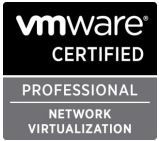 I just recently passed my VCP6-NV and wanted to take some time to blog about the experience and to gather together some resources for those that are looking to pursue this certification. For those you that may not know much about NSX I will start with a brief introduction and explain why I feel that you should pursue this certification for your company. What is NSX? VMware NSX is the next evolution in software defined everything. It is VMware's network virtualization and security software platform that came from an acquisition of Nicira back in 2012. What does NSX do? NSX de-couples the network functions from the physical network devices in your data center, in a way that analogous to decoupling virtual servers from the physical. NSX natively creates the traditional network constructs in the virtual realm. These include ports, switches, routers, firewalls, load balancers, etc. I could write an entire blog just on the features of NSX and the integrations with other third party vendors, such as Palo Alto Networks and Trend Micro; oh wait I did. You can read that in my blog here. But, that is not what this blog is about so let's move on. The VMware Certified Professional Network Virtualization exam, tests candidates on their knowledge and abilities to demonstrate basic virtualization networking skills such as vSwitch, vDistributed Switches, installation & configuration of NSX, and finally administration of NSX. In order to pass the exam you will need to have in depth understanding of these areas. Hands on with both NSX and vSphere are highly recommended. In fact, I believe that VMware recommends at least 6 months of hands-on. I would recommend setting aside dedicated time to go over the following resources along with practicing packet walks and architecture design. These are the resources that I used to study for the exam over a period of 6 months.
Exam Objectives: Section 1 – Define VMware NSX Technology and Architecture
The test consists of 80+ questions in which you have approximately 1 minute per question, which doesn't seem like a lot of time but it is plenty. You can also mark questions for review.. I found that once I completed the exam I had enough time to go back through all the questions once more to check for anything I missed. So, now that I have reviewed what NSX is and discussed the exam the next question is why should you take the exam? Besides certifications being a great way to show value to your company more importantly is that NSX is the next big wave in the virtual realm. I chose to take this exam because I believe that NSX is the next step in virtualizing the datacenter and I wanted to be on the forefront to help lead the direction for my company and our customers. I have the same excitement with NSX that I felt when I first became engaged with ESX. Since taking the exam, I have been between Buffalo and Albany NY, speaking to customers and white boarding their environments. This has lead to better engagements with customers and within VMUG (VMware User Group) where I lead three groups, Albany now Capital District, Syracuse and Rochester. NSX will change the face of networking just as vSphere did for physical servers. If you want to help drive the future direction of your company and help them become more secure, agile and flexible or if your company, like many others, are in the process of developing their cloud strategy then NSX can play a large role in that. |
RecognitionCategories
All
Archives
April 2024
|
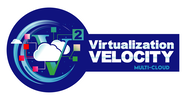
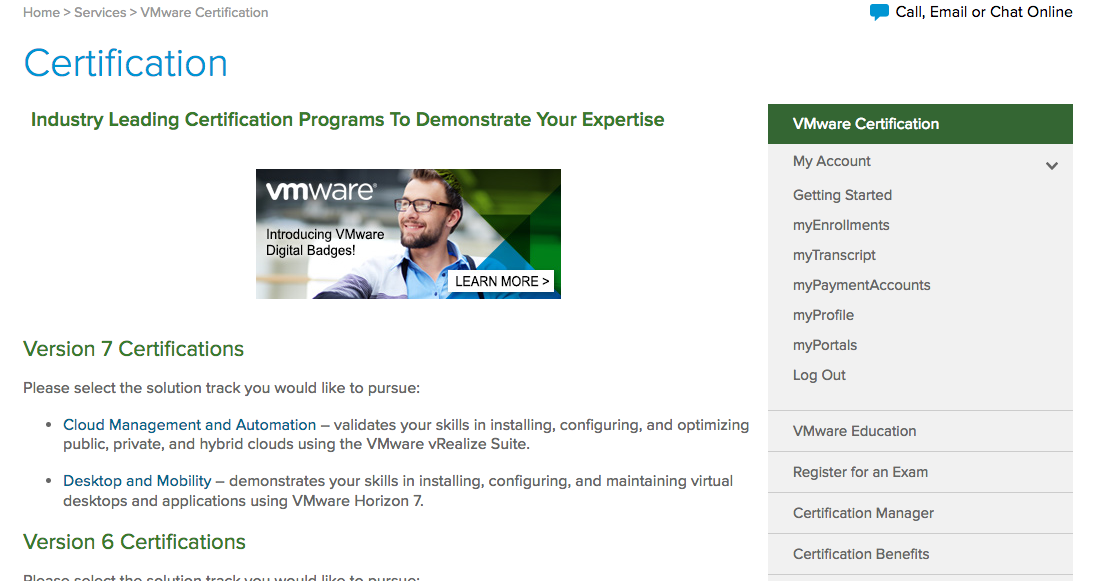


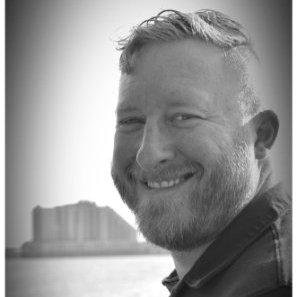
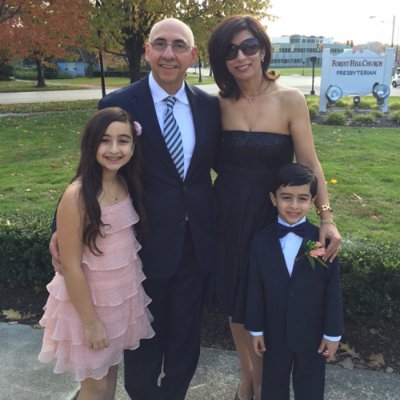
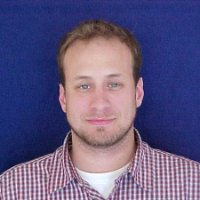
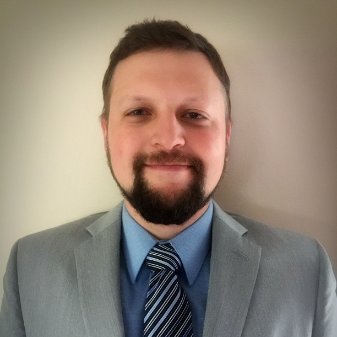
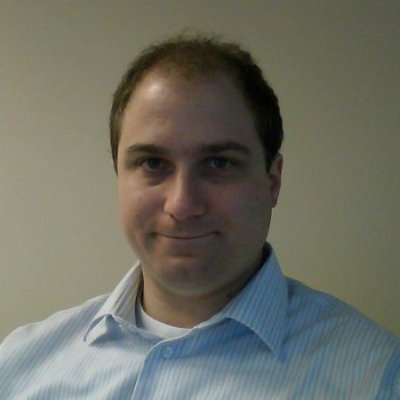
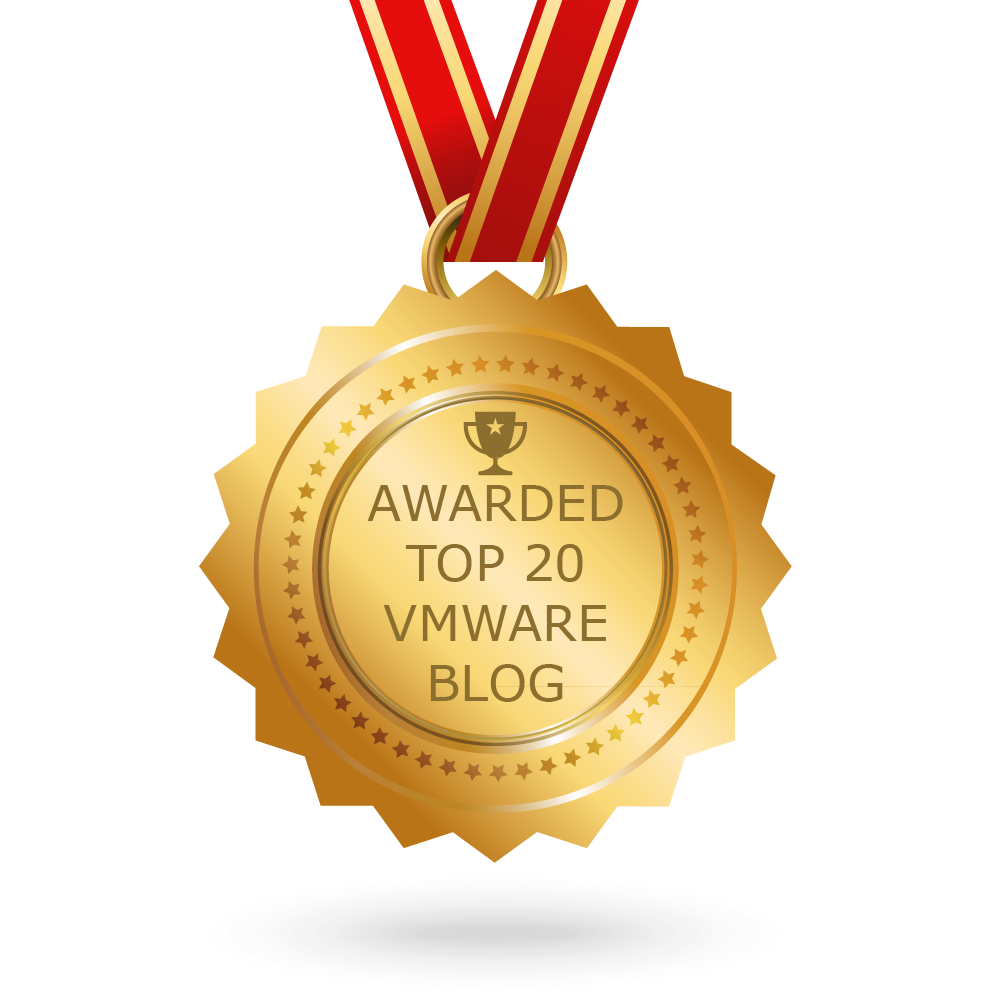
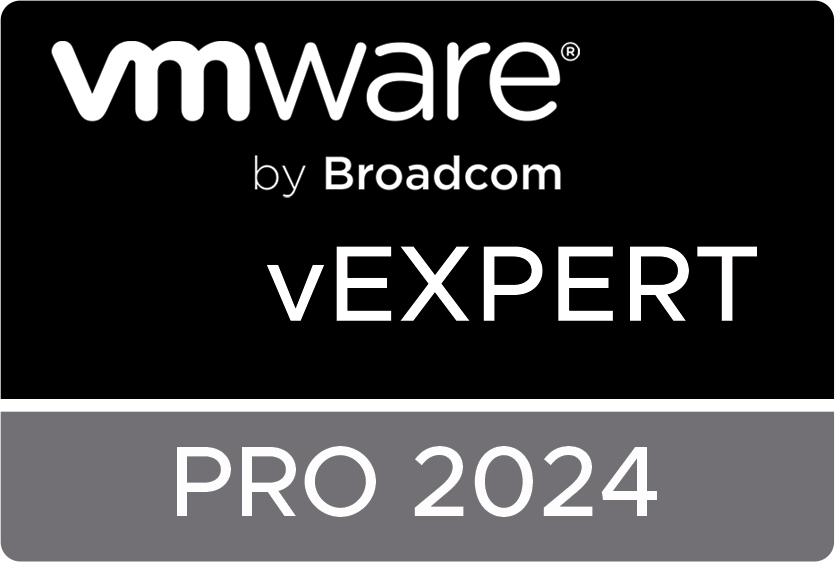
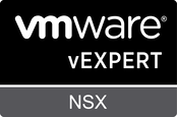
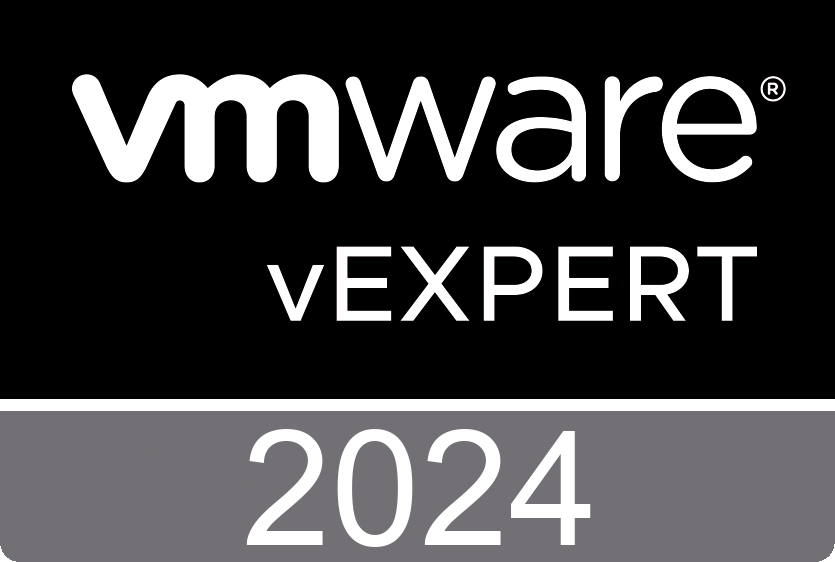
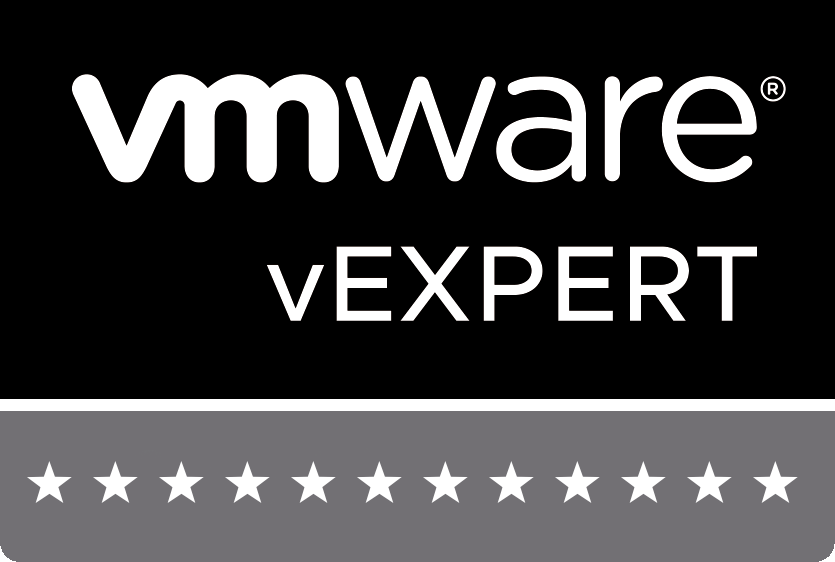
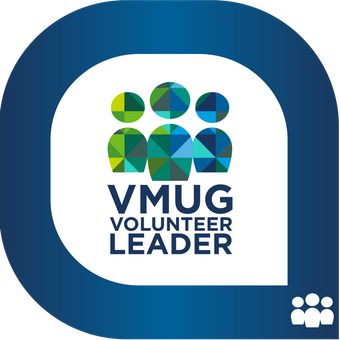
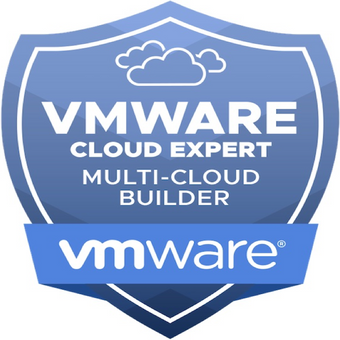
 RSS Feed
RSS Feed